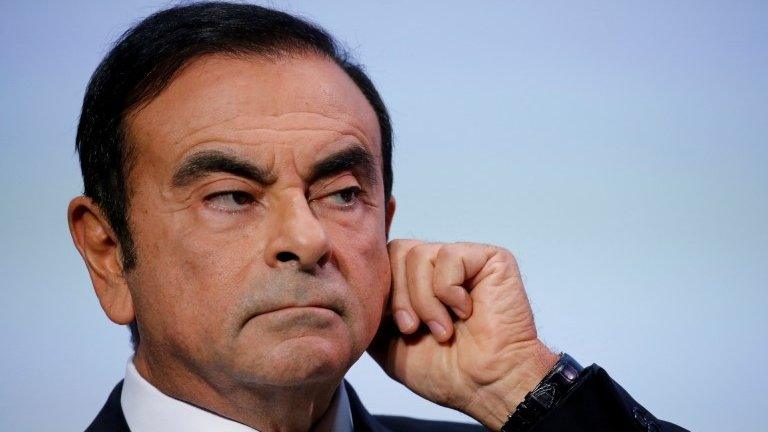The corporate scandals that rocked Japan
- Published
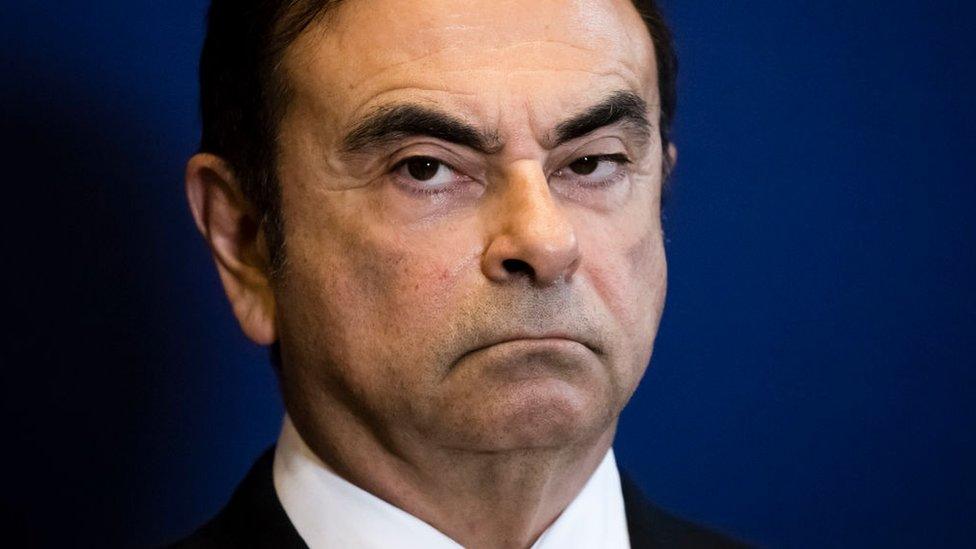
The scandal erupting at Nissan, following the arrest of its chairman Carlos Ghosn over allegations of financial misconduct, is far from the first crisis to hit Japan Inc.
The allegations against Mr Ghosn - the boss of the Renault-Nissan-Mitsubishi strategic alliance - could have a seismic effect on the global car industry.
But Japan has, in recent years, dealt with a number of high-profile corporate scandals.
Here are some of the most notable:
The Olympus affair
In October 2011, Michael Woodford achieved something no other Westerner had done - he became the first non-Japanese person to be named as chief executive of Olympus Corporation, the camera and electronics giant.
Two weeks later, he was fired.
Mr Woodford, who had worked at Olympus for 30 years, had blown the whistle on a vast accounting fraud at the company.
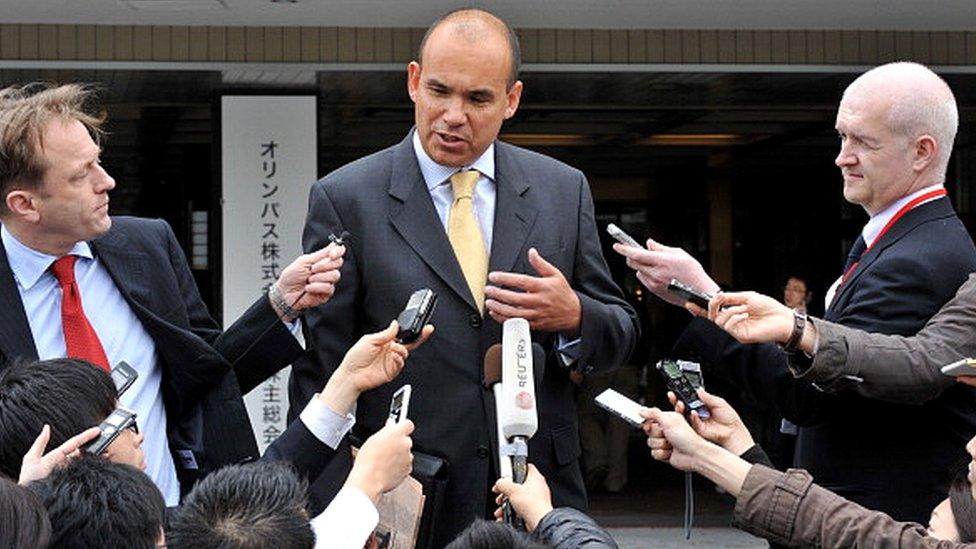
Michael Woodford blew the whistle on an accounting scandal at Olympus
After a string of denials, Olympus finally admitted that it had hidden $1.7bn (£1.3bn) worth of losses over two decades.
The entire board at Olympus ended up resigning and the company was forced to cut thousands of jobs.
Mr Woodford sued over his dismissal and was awarded £10m.
Toshiba's irregular accounting
Corporate governance in Japan came under the spotlight again in 2015 when Toshiba revealed that it had overstated its operating profit by nearly $1.2bn.
After the accounting scandal at the industrial conglomerate emerged, Japan's finance minister Taro Aso warned of the wider implications for the country's reputation.
"If [Japan] fails to implement appropriate corporate governance, it could lose the market's trust," he said.
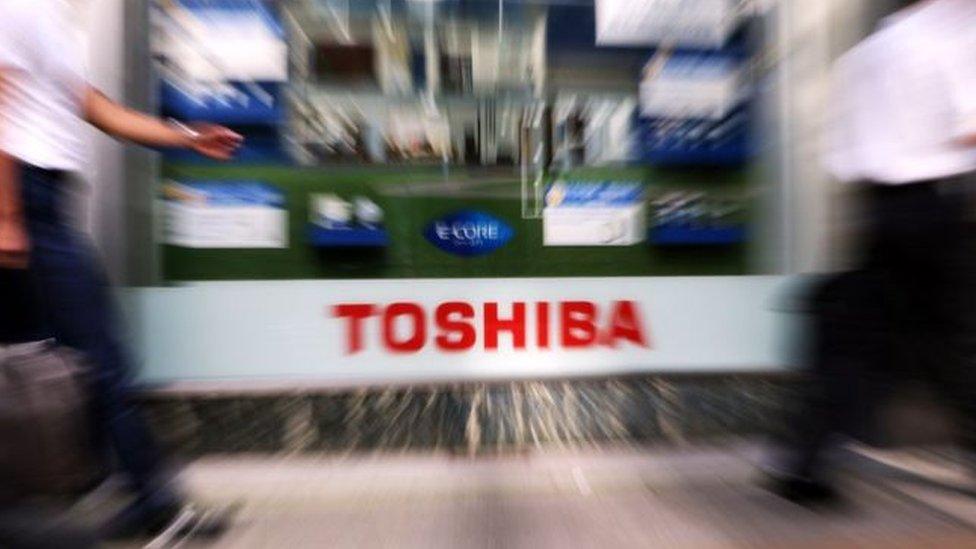
An independent report examining Toshiba found that its improper accounting practices went back to 2008 when the global financial crisis hit.
The report said employees were under pressure to meet aggressive earnings targets.
"Within Toshiba, there was a corporate culture in which one could not go against the wishes of superiors," it said.
Executives resigned. Lawsuits were filed.
But life remained tough for Toshiba and its US nuclear business Westinghouse was forced to file for bankruptcy protection last year.
Westinghouse was sold for $4.6bn to Canada's Brookfield Business Partners earlier this year.
Takata's deadly airbags
Takata was an automotive parts manufacturer which was founded in 1933 by Takezo Takada.
But by 2017, under the stewardship of his grandson, Shigehisa Takada, the company had become mired in a global scandal over faulty airbags that were linked to numerous deaths and hundreds of injuries.
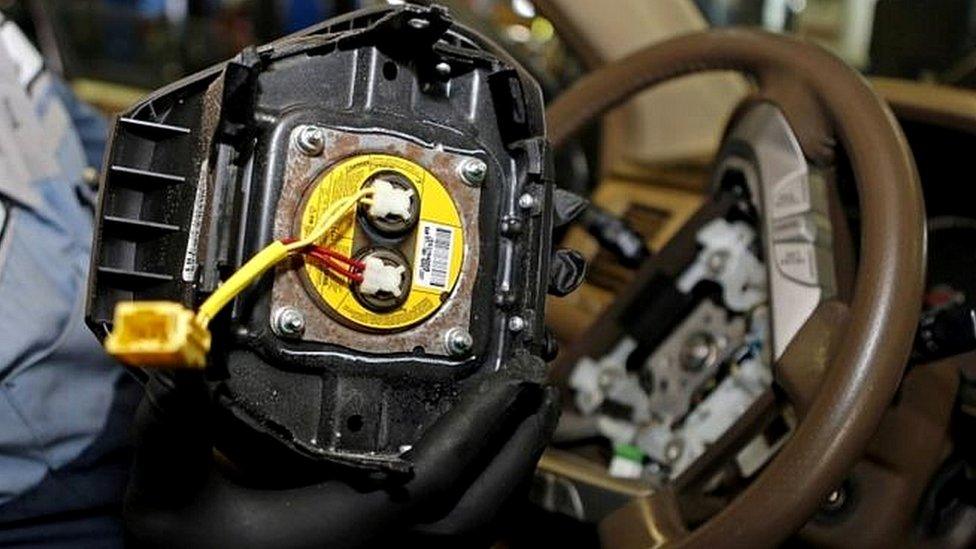
A fault in Takata's airbags caused some to rupture when inflated
Takata's troubles started when it began using a chemical called ammonium nitrate to quickly inflate airbags in vehicles.
Some inflated with such force, they spewed shrapnel at drivers and passengers leading to injuries and in some cases, death.
Takada was forced to recall millions of airbags which, along with a multi-million dollar wave of legal claims, forced the firm to seek bankruptcy protection and prompted the resignation of Mr Takada.
The company was bought by US-based Key Safety Systems earlier this year.
Kobe Steel's data scandal
The travails that emerged at Japan's third-largest steelmaker had potentially wide-reaching implications - Kobe Steel supplies its products to makers of cars, planes and trains around the world.
It came to light in October 2017 that some of Kobe's staff had changed or falsified data about the quality of some of its goods before they were shipped to customers.
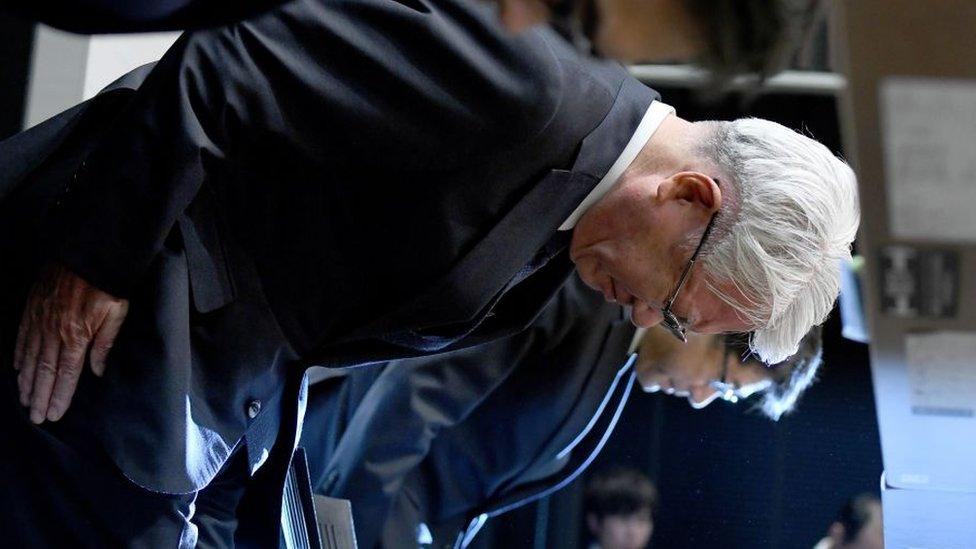
Kobe Steel's chairman and chief executive Hiroya Kawasaki resigns
Kobe Steel revealed almost 700 instances of "misconduct" and admitted it had "deep-seated issues" around corporate culture and compliance, though no safety issues have been reported.
An investigation into the scandal this year found the firm's management style overemphasised profitability and suffered from inadequate corporate governance.
Two executives in Kobe's aluminium and copper division knew about the falsification of data but took no action and were subsequently fired.
Kobe Steel's chairman and chief executive Hiroya Kawasaki also resigned in April.
Nissan's emissions failure
Following the "dieselgate" scandal that engulfed German carmaker Volkswagen, Japan faced its own emissions crisis.
Nissan admitted in July that some emissions and fuel economy tests for its cars sold in Japan had "deviated from the prescribed testing environment".
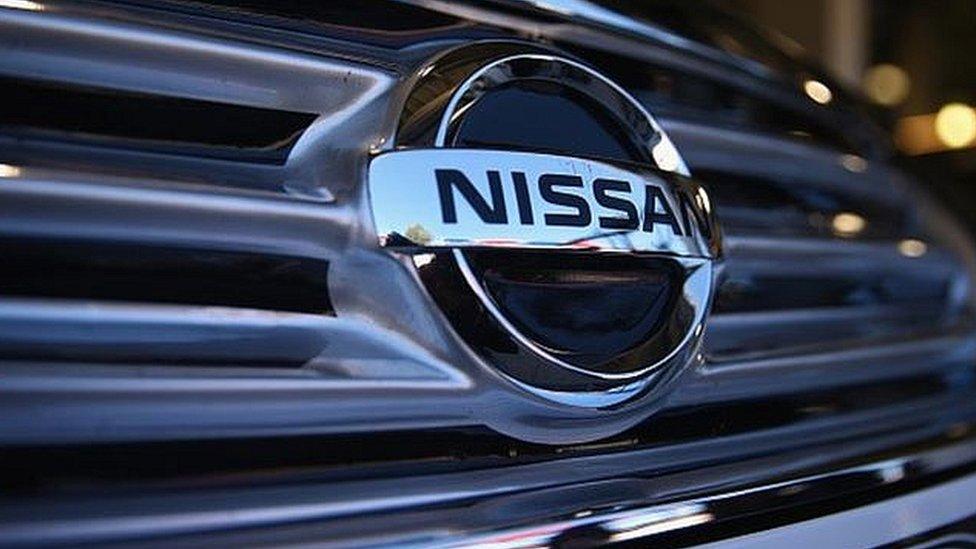
The company also said that inspection reports had been "based on altered measurement values".
Nissan pledged to conduct a comprehensive investigation and said measures would be taken to ensure the situation did not happen again.
The scandal delivered a hit to Nissan's reputation but contrasts to the troubles at VW, where the firm was found to have falsified emissions levels by installing "defeat devices".
- Published20 November 2018
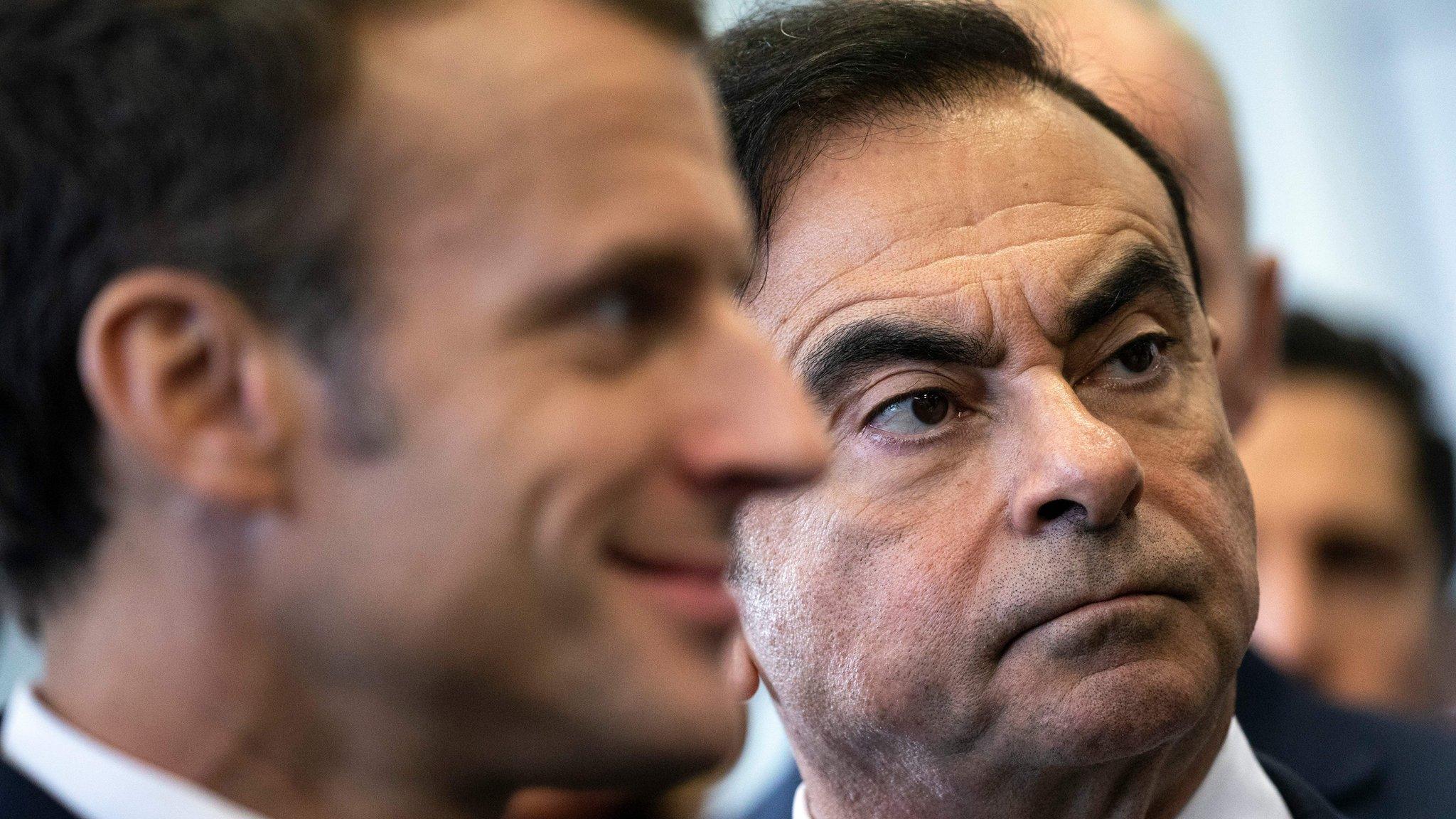
- Published19 November 2018
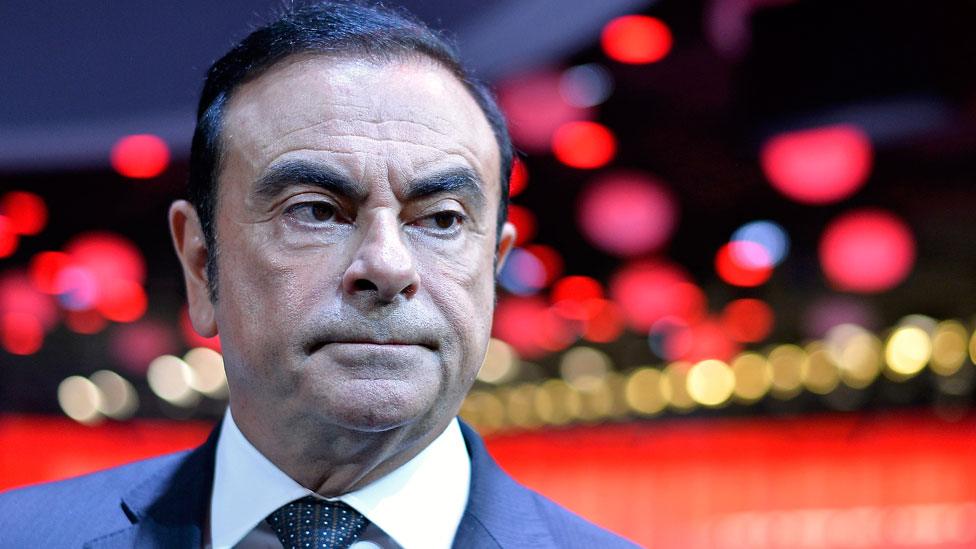
- Published31 December 2019
